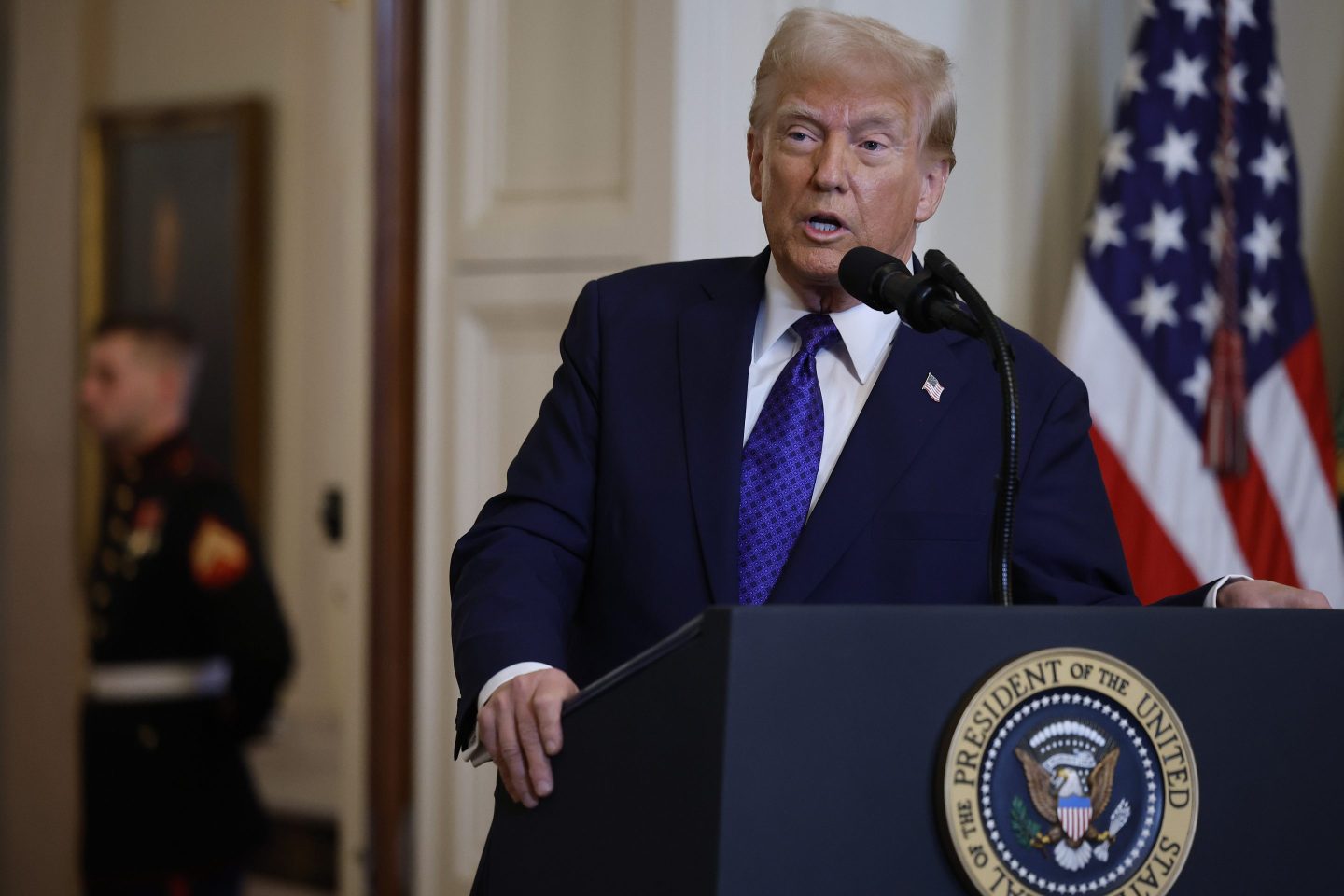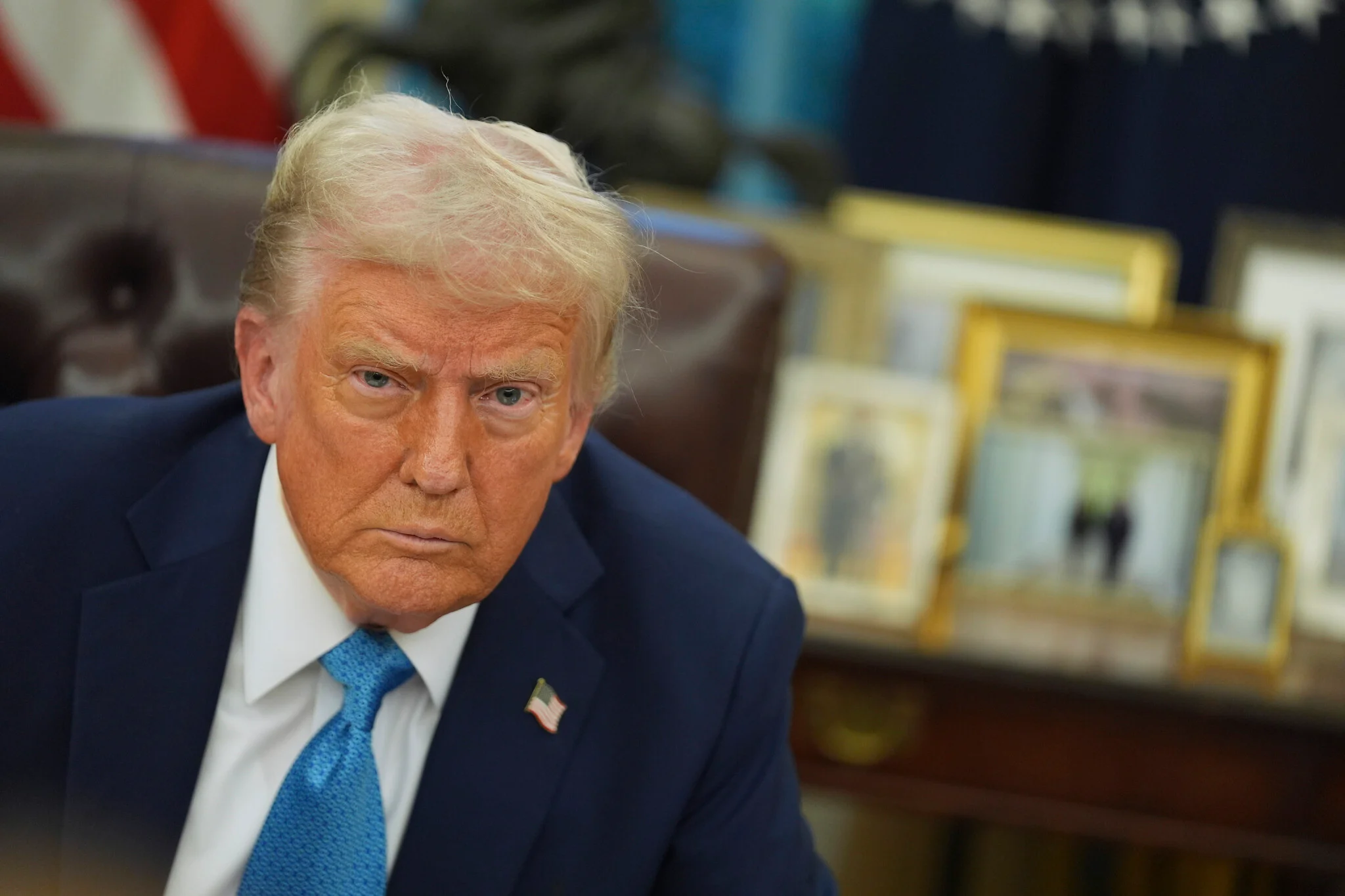As Donald Trump threatens to impose steep tariffs on numerous countries, he claims these import taxes will boost the US economy. However, most economists strongly disagree, arguing that Trump’s tariffs will drive inflation, slow economic growth, harm American workers, and ultimately force US consumers to bear the cost.
“Virtually all economists think that the impact of the tariffs will be very bad for America and for the world,” said Joseph Stiglitz, an economics professor at Columbia University and a Nobel Prize winner in economic sciences. “They will almost surely be inflationary.”
On inauguration day, Trump threatened to impose a 25% across-the-board tariff on all imports from Canada and Mexico starting February 1, stating, “because they’re allowing vast numbers of people” to “come in, and fentanyl to come in.”
Additionally, he warned China of a 10% tariff unless it halts fentanyl shipments, while maintaining his long-standing threat of a 60% tariff on Chinese goods.
“It’s inconceivable that other countries won’t retaliate,” said Stiglitz, who previously served as chairman of Bill Clinton’s Council of Economic Advisers.
“Even if some of the governments might not want to retaliate, their citizens will demand that you can’t allow yourself to be beaten up. When you make like a gorilla thumping on his chest, are countries just going to say, ‘Are we chopped liver?’ Their politics will demand that they do something.”
The prospect of tariffs, growing tensions, and fears of retaliation or a trade war will likely lead many businesses to scale back planned investments, a move economists warn will hurt economies worldwide.
Marcus Noland, executive vice president of the Peterson Institute for International Economics, said: “The impact of imposing these tariffs will have the effect of depressing US economic growth, contributing to a higher rate of inflation, and those effects will be worse if the other countries retaliate in kind.”
Despite this, Trump insists his aggressive trade policies will benefit Americans. On inauguration day, the White House issued his “America First Trade Policy” memo, stating: “I am establishing a robust and reinvigorated trade policy that promotes investment and productivity, enhances our nation’s industrial and technological advantages, defends our economic and national security, and—above all—benefits American workers, manufacturers, farmers, ranchers, entrepreneurs and businesses.”
However, many economists argue this vision is unrealistic, predicting that Trump’s tariffs will ultimately harm US manufacturers, farmers, and workers. Jim Stanford, a well-known Canadian economist and former chief economist for Canada’s auto workers’ union, warned that if Trump implements 25% tariffs on Canada, it would cause severe damage to both the US and Canadian auto industries.
“The Canadian and US auto industries have been intertwined for 60 years,” Stanford said. “What happens if they put a 25% tariff on all the auto parts and products coming from Canada and Mexico? Some auto parts cross the border eight times before they’re put in the final vehicle.”
He explained that a piece of steel might be shipped from Mexico to the US to be molded into a carburetor part, then sent to Canada for assembly before returning to Mexico for installation in a final vehicle—eventually sold in the US.
“The tariffs would apply each time parts cross the border,” Stanford said. “That 25% would be compounded on each step. The impact on costs would be astounding.”
Stanford also pushed back against Trump’s assertion that Canada and its automakers would bear the cost of the tariffs. “By and large, that’s false. It’s clearly going to raise auto prices in America. It is Americans who will directly pay for it. There’s no doubt about that.”
Economists highlight that one major consequence of sizable tariffs is that consumers end up paying more when purchasing imports, effectively handing over more money to the government. This, in turn, reduces consumers’ ability to spend on other goods, hurting both manufacturers and retailers.

Donald Trump (Photo: Getty Images)
Noland, of the Peterson Institute, pointed out that Trump and other tariff supporters argue that such measures will revitalize US industry. “What we found is it actually tends to have the opposite effect. It tends to damage the industrial sector by decreasing efficiency in production relative to other countries.”
During his first term, Trump’s tariffs on China led to retaliatory tariffs that targeted US agricultural exports, severely impacting American farmers. Noland predicted that if Trump again imposes tariffs on China, farmers will once again suffer from Chinese retaliation.
Eswar Prasad, a trade policy expert at Cornell University, cautioned that Trump’s tariffs would trigger additional negative consequences.
“US exporters will face a particularly tough time, as they are likely to face rising tariff barriers in their foreign markets,” Prasad said. “In addition, tariffs are likely to drive up the dollar and reduce the competitiveness of their exports in global markets.”
He also warned that the uncertainty surrounding Trump’s tariff threats is creating instability. “The looming threat of tariffs and the unpredictability of what they will be is fomenting enormous uncertainty in the global business environment, which is harmful for business investment and job creation.”
Stiglitz identified another troubling risk of Trump’s tariff plans: the potential for retaliation to push inflation higher. In response, central banks would likely raise interest rates. “That has a chance of leading to the worst of possible outcomes—interest rates going up with stagflation, interest rates going up in the face of a weak economy,” Stiglitz said.
In some respects, Stiglitz noted, this would undermine one of Trump’s key justifications for tariffs: using them to help offset “Trump’s tax cuts for billionaires.” “If growth slows down, tax revenues will slow down,” he said.
David Seif, Nomura’s chief economist for developed markets, acknowledged that some Trump policies, such as tax cuts and deregulation, could counteract the negative effects of tariffs on economic growth.
However, he also noted that “there is likely to be higher inflation this year than there otherwise would be, and that might limit the Federal Reserve to a single rate cut this year.” This could hinder Trump’s desire for rapid interest rate reductions from the Fed.
Seif suggested that the Trump administration appears to be planning tariffs in two phases: an initial wave aimed at pressuring countries to curb immigration and fentanyl shipments, followed by a broader, long-term wave of high tariffs designed to generate revenue and boost US manufacturing.
But economists warn that, with the US near full employment—the jobless rate is just 4.1%—expanding the manufacturing sector could prove difficult, especially as many immigrant workers face deportation.
Lindsay Owens, executive director of the Groundwork Collaborative, a progressive policy think tank, said predicting Trump’s tariff strategy is challenging because of an internal divide within the Republican Party. “There is a kind of war going on in the Republican Party between where the Maga folks are on trade and where the chamber of commerce is.”
Owens noted that many are questioning how Trump’s tariff policies, which are expected to raise consumer prices, align with his promise to lower costs. She warned that tariffs would disproportionately affect lower-income Americans, as they “spend a disproportionate amount of their income on consumption.”
She also pointed out that Trump’s advisers have promoted tariffs as a way to benefit American workers while also financing tax cuts for the wealthy. “If these tariffs are to pay for tax cuts for billionaires,” Owens asked, “doesn’t the supposed benefits that tariffs have for the working class get canceled out somewhat?”











































